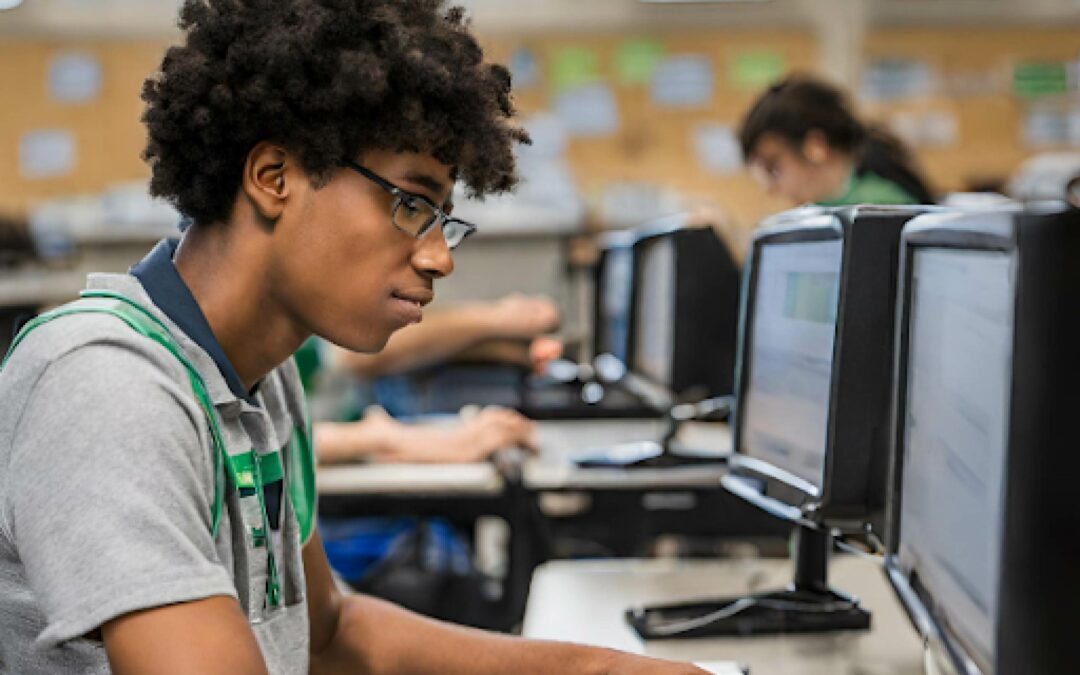Personalized Learning
One of the most significant benefits of AI in education is personalized learning. AI can analyze data from students’ performance and provide personalized recommendations based on their strengths and weaknesses. This approach can help students learn at their own pace and focus on areas where they need more help. Personalized learning can also help students who are struggling with a particular subject or concept. AI can provide additional resources and support to help them understand the material better.
AI-powered adaptive learning platforms can also adjust the difficulty level of the content based on the student’s performance. This approach ensures that students are challenged enough to learn but not overwhelmed. Adaptive learning platforms can also provide immediate feedback to students, allowing them to correct their mistakes and learn from them.
Efficient Grading
Grading is a time-consuming task for teachers, especially when they have to grade a large number of assignments or exams. AI can help automate the grading process, saving teachers time and effort. AI-powered grading systems can analyze student responses and provide accurate and consistent grading. This approach can also reduce the risk of bias in grading, ensuring that all students are evaluated fairly.
AI-powered grading systems can also provide immediate feedback to students, allowing them to understand their mistakes and learn from them. This approach can help students improve their performance and achieve better results.
Improved Student Engagement
AI can also improve student engagement in the classroom. AI-powered chatbots can provide students with instant answers to their questions, allowing them to stay engaged and focused on the lesson. Chatbots can also provide additional resources and support to students, helping them understand the material better.
AI-powered virtual assistants can also help students stay organized and on track. Virtual assistants can remind students of upcoming assignments, exams, and deadlines, ensuring that they stay on top of their work. This approach can help students manage their time more effectively and reduce stress.
Enhanced Curriculum
AI can also enhance the curriculum by providing students with access to a wide range of resources and materials. AI-powered educational platforms can provide students with personalized recommendations based on their interests and learning style. This approach can help students discover new topics and subjects that they may not have been exposed to otherwise.
AI can also help teachers create more engaging and interactive lessons. AI-powered tools can provide teachers with real-time feedback on their teaching style and suggest ways to improve it. This approach can help teachers create more effective lessons that resonate with their students.
Improved Accessibility
AI can also improve accessibility in education. AI-powered tools can provide students with disabilities with additional support and resources, allowing them to learn alongside their peers. For example, AI-powered text-to-speech tools can help students with visual impairments access written materials. AI-powered speech recognition tools can also help students with hearing impairments participate in classroom discussions.
AI can also help students who speak English as a second language. AI-powered translation tools can provide students with real-time translations of classroom discussions and materials, allowing them to understand the content better.
Challenges and Limitations
While AI has the potential to transform education, there are also challenges and limitations that need to be addressed. One of the biggest challenges is the cost of implementing AI in education. AI-powered tools and platforms can be expensive, and not all schools and institutions have the resources to invest in them.
Another challenge is the potential for bias in AI-powered systems. AI algorithms are only as unbiased as the data they are trained on. If the data used to train AI algorithms is biased, the algorithms will also be biased. This can lead to unfair evaluations and recommendations, which can have a negative impact on students.
Finally, there is a concern that AI could replace teachers in the classroom. While AI can provide additional support and resources to students, it cannot replace the human connection and empathy that teachers provide. Teachers play a critical role in shaping students’ lives and helping them develop critical thinking skills and social-emotional intelligence.
Ultimately, AI has the potential to revolutionize education by providing personalized learning, efficient grading, improved student engagement, enhanced curriculum, and improved accessibility. AI-powered tools and platforms can help students learn at their own pace, focus on areas where they need more help, and receive immediate feedback. AI can also help teachers create more engaging and interactive lessons and provide additional support and resources to students with disabilities and those who speak English as a second language.
However, there are also challenges and limitations that need to be addressed, including the cost of implementing AI in education, the potential for bias in AI-powered systems, and the concern that AI could replace teachers in the classroom. It is essential to strike a balance between the benefits of AI and the human connection and empathy that teachers provide. By leveraging the power of AI while also valuing the role of teachers, we can create a more personalized, efficient, and effective education system that benefits all students.





